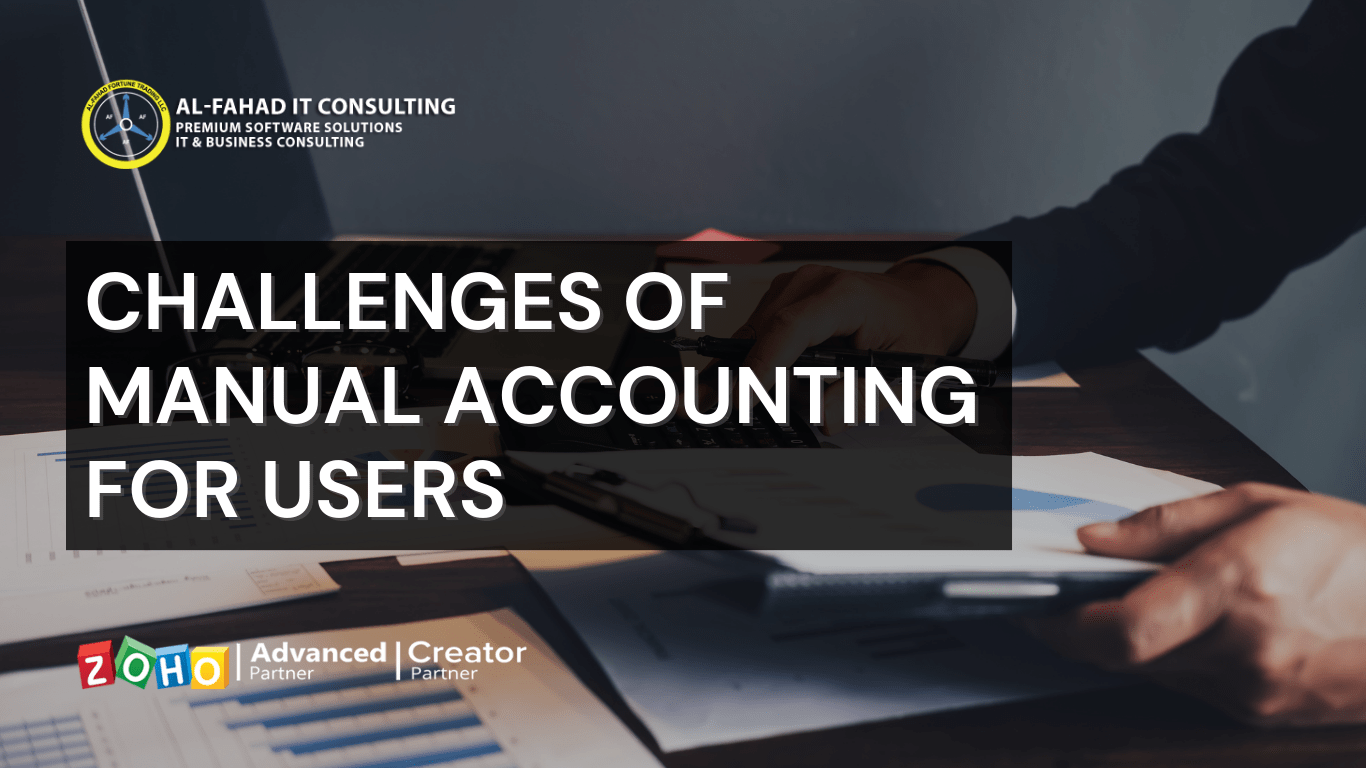AL FAHAD IT CONSULTING2024-01-19T07:13:58+00:00
Manual accounting is the process of recording financial transactions manually, using pen and paper, spreadsheets, or other non-electronic methods. While it can be a cost-effective solution for small businesses or individuals, there are several challenges associated with manual accounting. Here are some of the top challenges of manual accounting for users:
- Time-Consuming:
- Manual accounting can be a time-consuming process, especially for businesses with a high volume of transactions. Recording every transaction, reconciling accounts, and generating reports manually can be a tedious and time-consuming task, taking up valuable time that could be spent on other business activities.
- Prone to Errors:
- Manual accounting is prone to errors, especially when dealing with a high volume of transactions. Even the smallest mistake can have significant implications on the accuracy of financial records and can lead to incorrect financial decisions.
- Limited Scalability:
- Manual accounting can be challenging to scale as the business grows. The more transactions a business has, the more time-consuming and error-prone manual accounting becomes, making it challenging to keep up with the growth of the business.
- Lack of Real-time Data:
- Manual accounting often results in delayed or outdated financial data, making it challenging for businesses to make informed decisions in real-time. This can be a significant disadvantage for businesses that require up-to-date financial information to make informed decisions.
- Security Risks:
- Manual accounting carries a higher risk of data breaches and theft than electronic accounting systems. Paper records can be lost, stolen, or damaged, and spreadsheets can be easily manipulated, making it difficult to ensure the security and confidentiality of financial data.
- Compliance Challenges:
- Manual accounting can make it difficult to comply with tax regulations and other legal requirements, especially when dealing with complex tax laws and regulations. This can result in costly penalties and fines for businesses that fail to comply with the law.
Conclusion:
Manual accounting has several challenges that can make it difficult for businesses to maintain accurate and up-to-date financial records. The time-consuming and error-prone nature of manual accounting can limit scalability, hinder real-time data access, and pose security and compliance risks. To overcome these challenges, businesses can consider transitioning to electronic accounting software that offer real-time data, scalability, and improved security and compliance.




Leave a Reply